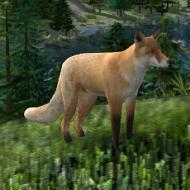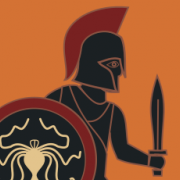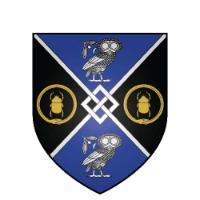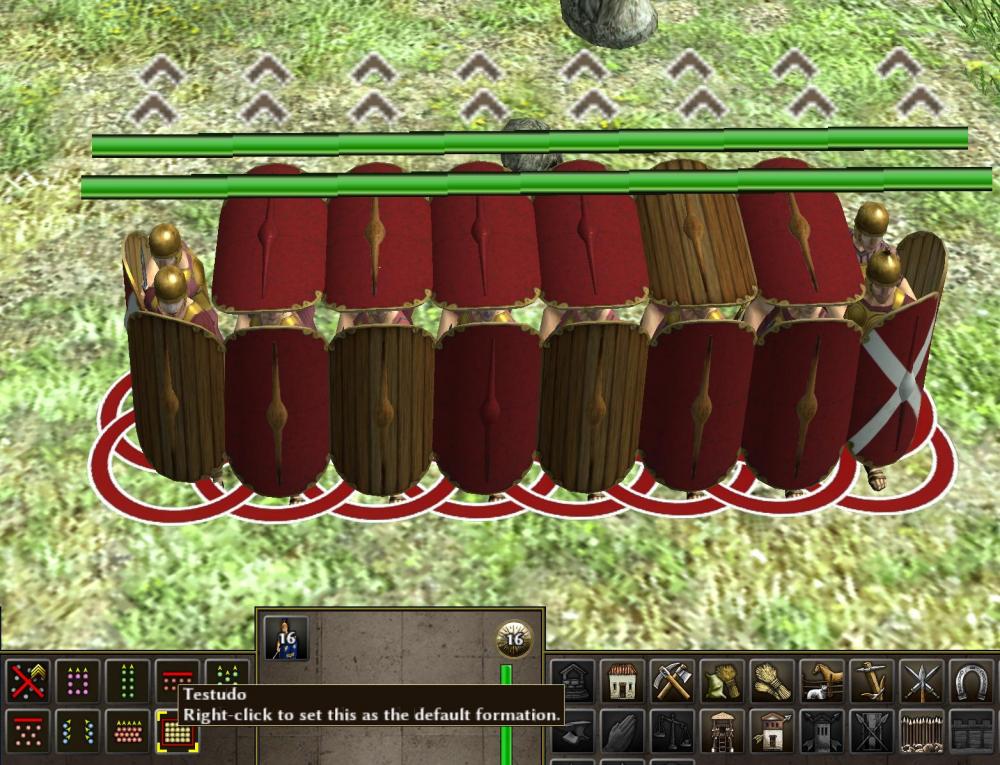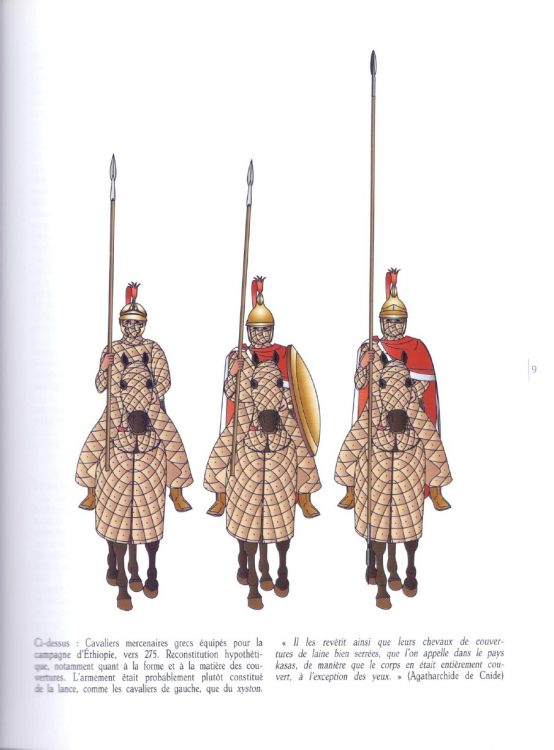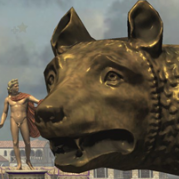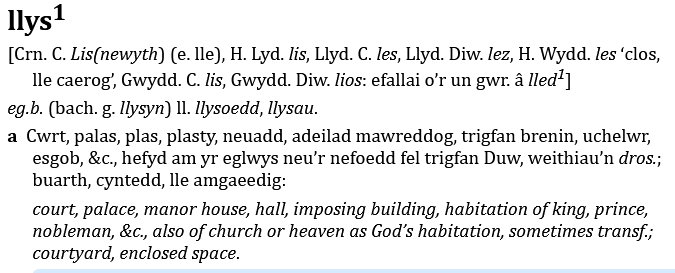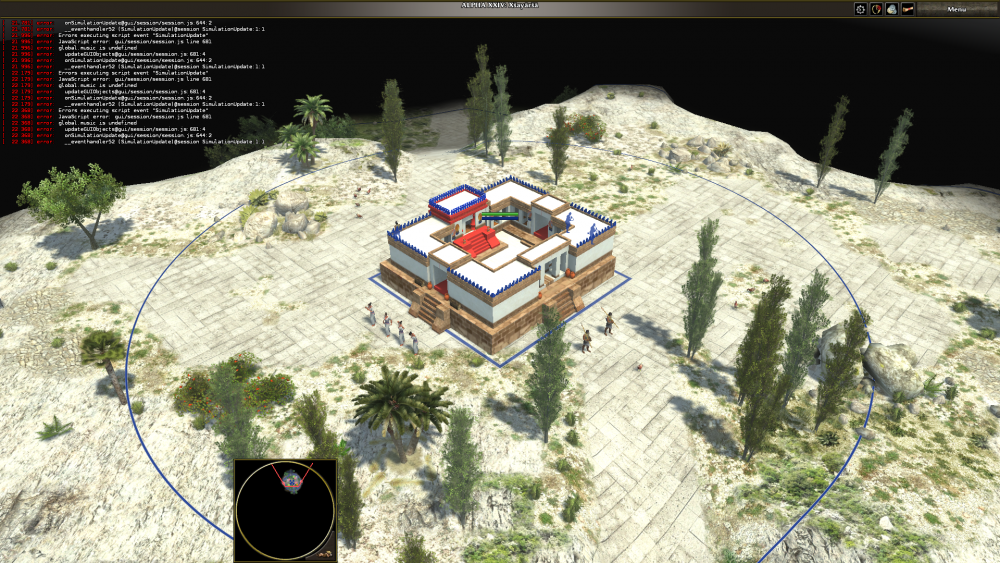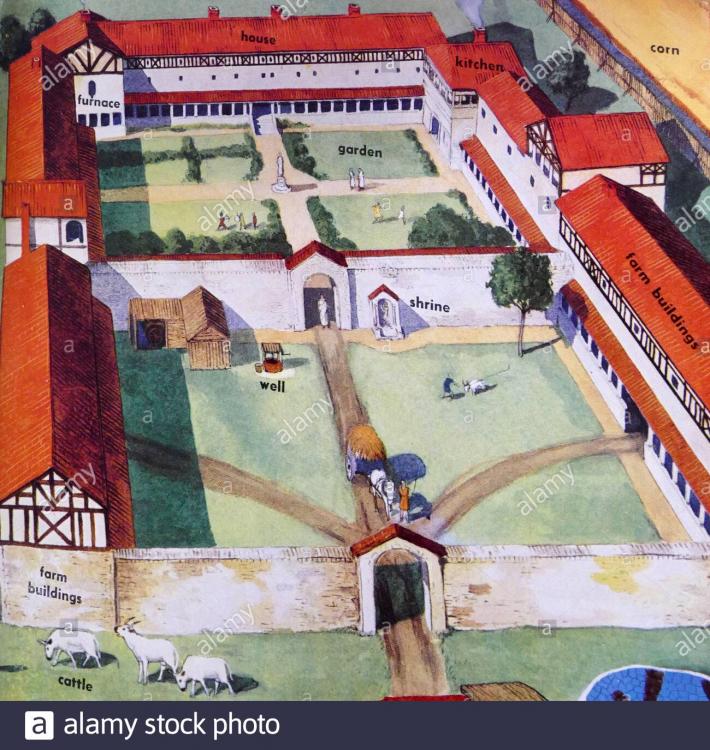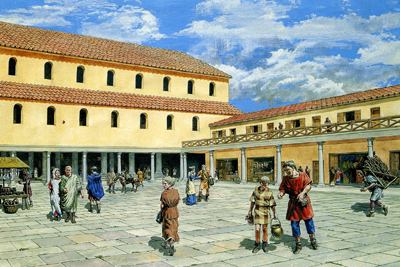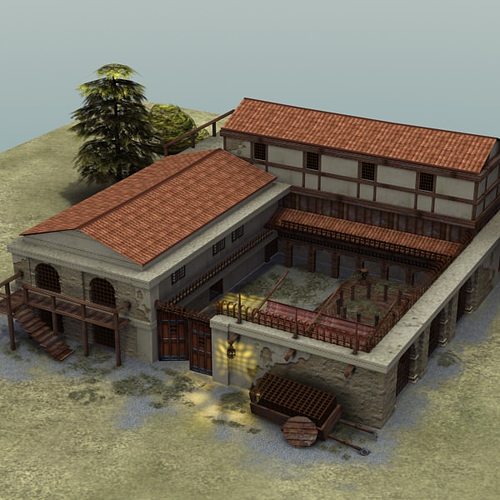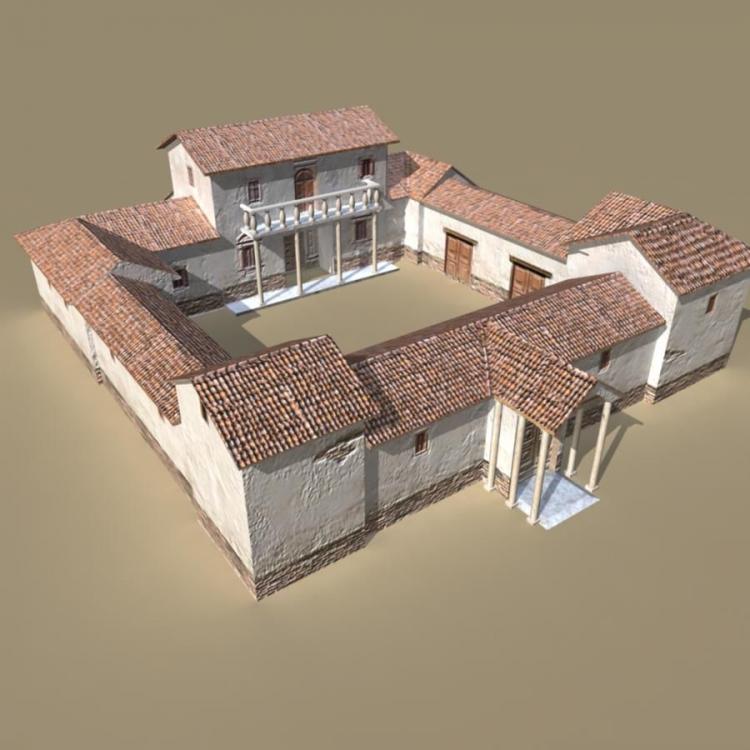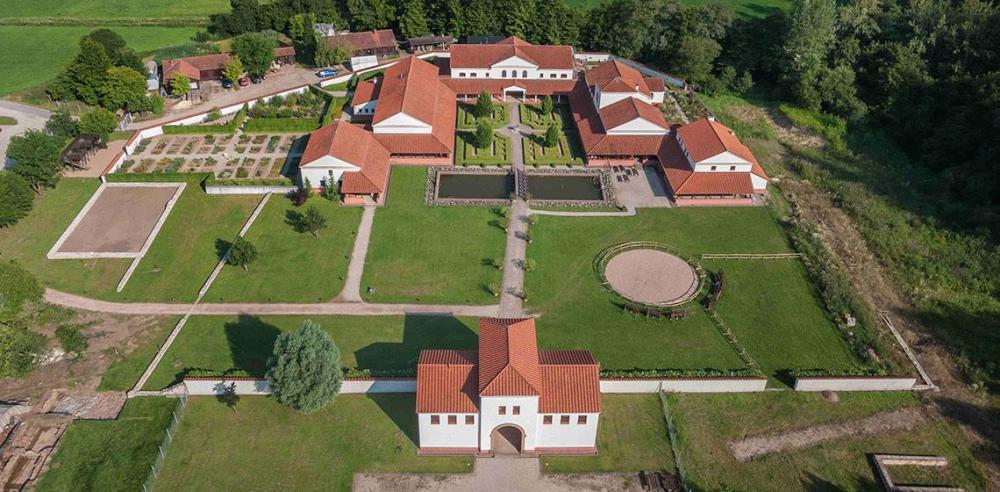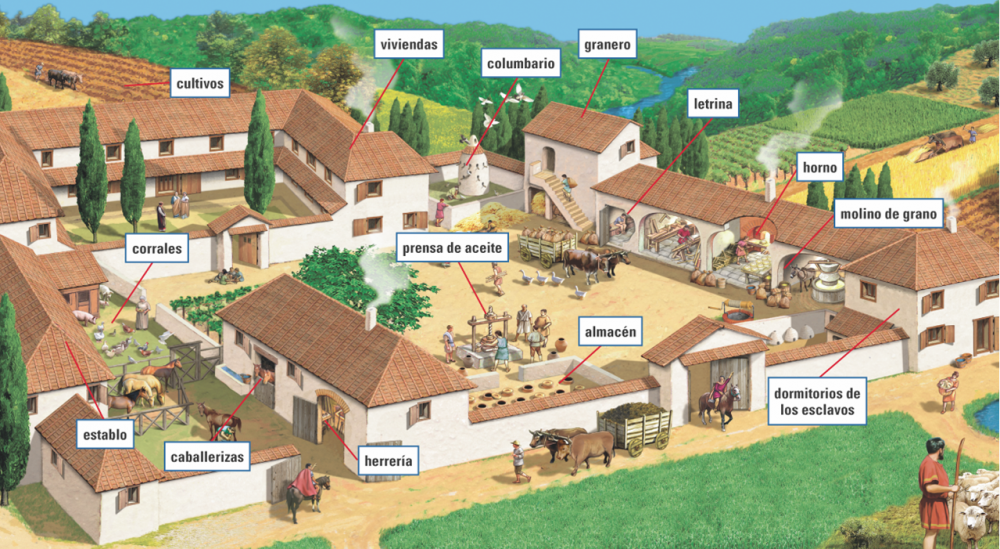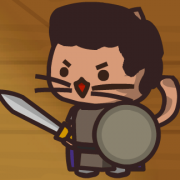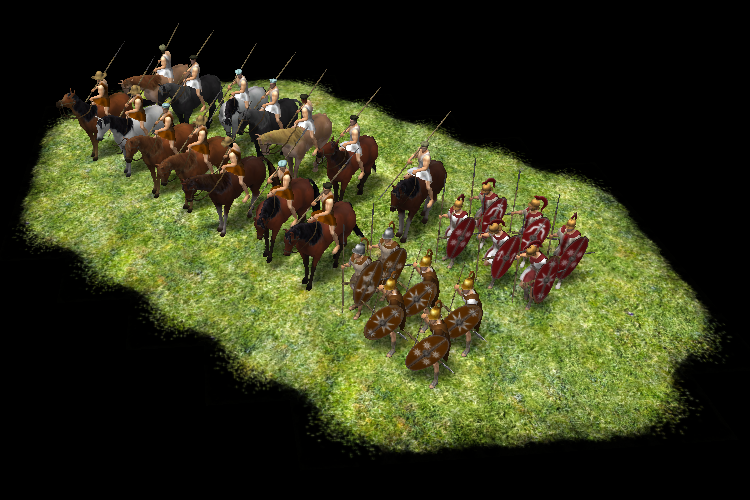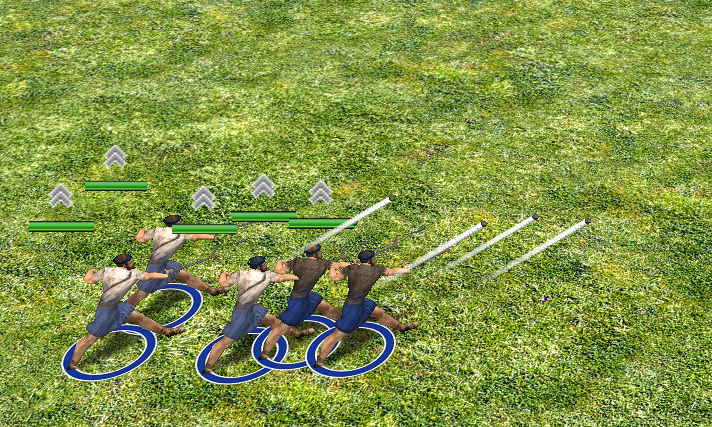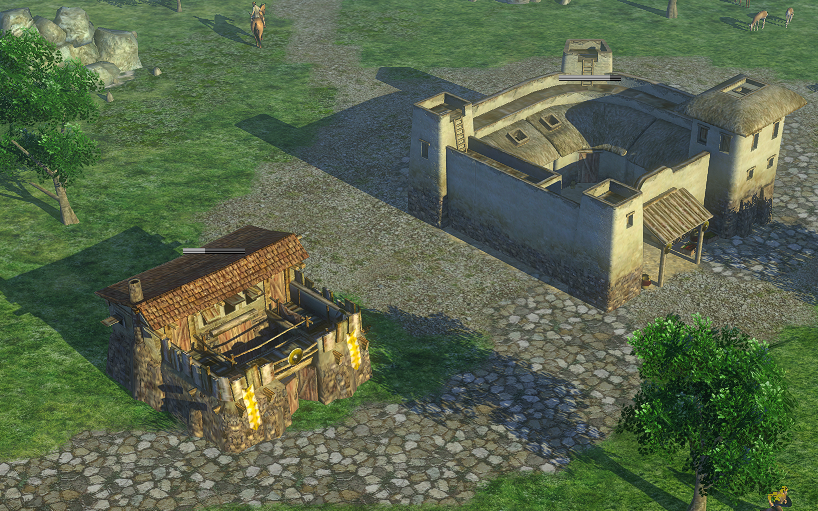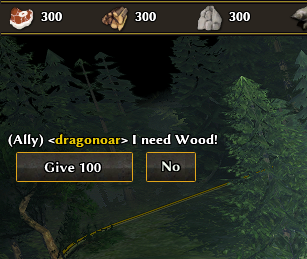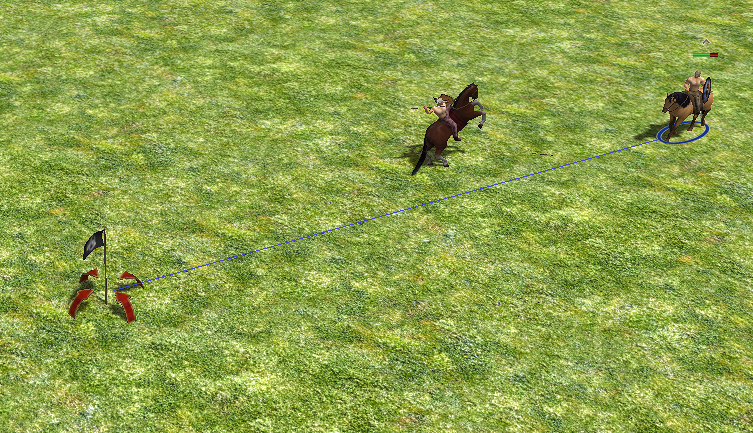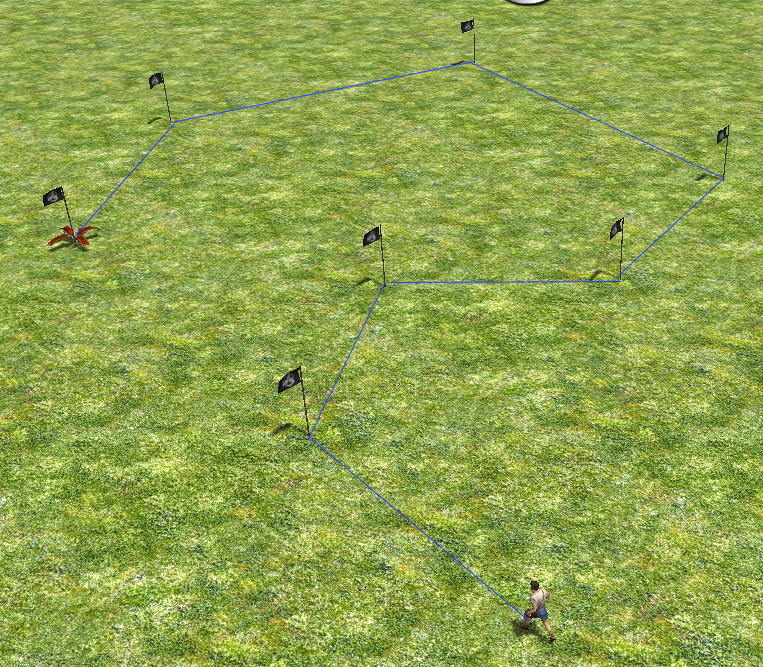Leaderboard
Popular Content
Showing content with the highest reputation on 2021-03-09 in all areas
-
Hi, I write with a little anger, hmm, a lot even and I think that it will be worth me a ban but as long as I do ... First of all, take a look at my last game, yes my last if nothing is done to change things. Files are in attachments. Now tell me, tell me honestly if that, that is 0ad. For my part, I can hardly recognize this game I loved so much, this game which reached such a level that it became a benchmark in the genre. Now, speaking to the developers, I just want to ask you why. Why such a rushed release ? I have no doubt that you are working hard to fix the bugs that are going to be submitted daily, but so many changes and so sudden are not the best. I also know how to count on your listening to the community to direct you in your works when you do not know which direction to take. I will not list here everything that is wrong with this release but I trust that the cries of the players will be heard and that the game-play will be quickly restored. 0ad is a long term dream so please, please, make it great again and remember that #Make0adGreatAgain commands.txt metadata.json4 points
-
3 points
-
3 points
-
Participate in the debates about the alpha 25 gameplay, if you have well-founded and specific ideas aimed at improving the game you will surely be heard.3 points
-
3 points
-
3 points
-
3 points
-
OMG, what have they done to my Romans?!! Cat's don't seem to target soldiers anymore. Ships are now laughably impotent and can easily be dispatched by archers (really?), while ships garrisoned with cats do nothing against their attackers in return. Roman champ cav seems to have lost all its tech upgrades, and now are easily dispatched. **about the only defense Rome had against ramSpam was fast, tough champ cav. That's gone now. Rome still has no defense against long range ground units (archers, slingers) save for seige, which now is so fragile as to be nearly useless. **Romans need mercenary archers/slingers option (like other factions do). Rome had strong walls, and strong buildings ("had" being the operative word), which helped offset horde attacks. It only took a few games against the ai horde attacks to realize just how badly nerfed Rome had become in 24b. 24b seems to cater to the spam-fast-and-hard crowd (the celtic-only wonder boyz). Romans had been very strong, but range disadvantaged, slow (to build), and structurally expensive. But with engineering techniques, they could hold, and gain territory. No longer. With their camps they could project power that offset other limitations. Now even that capability has been emasculated. Non-spamming type thinking seems to have displeased the prior celtic-horde old-boy network. In 24b that sort of inappropriate thinking appears to have been corrected, preserving the status quo. I'm sure we'll read and hear how all this was *necessary* and clearly a *fair* change, if we would only be reasonable and accept the mandates imposed on us by our black hooded masters. And that any descent is indicative of some kind of character flaw of anyone who would dare criticize these changes. For those who might rebel against what is clearly tyrannical conspiracy, I suggest the following.. We, the oppressed, should mandate that everyone involved in pushing our beloved developer team to implement this ludicrous perversion of Rome (and other factions I fear) be made to play only the Roman faction (and no other) for the duration of 24b, until version 25 arrives. I mean, since all these changes are fair, balanced and just, they should have no objection and gladly accept this edict as a token of good will and to promote 0ad social cohesion. Note: My comments are in no way intended to disparage the development team. Those folks work very hard for low pay ($0.00), and are about the kindest, most agreeable folks (except for wraitii, but he's still ok) I've ever encountered. Please drop some kind words on the wildfire team!3 points
-
2 points
-
And of course I can simply congratulate the development team for all the great changes made. Those changes include : - Lot better graphisms - Better options - Better GUI - Better translations - Even a Better balance and global pathfinding2 points
-
And with @andy5995's permission, included with Delenda Est Alpha 24.2 points
-
make it possible for soldiers to marry women and make babies that later can level up and become heroes2 points
-
I was surfing the web, trying to find some free 3D models for my mod when I found this site: https://www.smk.dk/article/digitale-afstoebninger/ The site is in Danish, so I have to use Google Translate. So SMK (Gallery Museum of Denmark) 3D-scanned some of their collection and released the 3D models free of charge (CC0). We still need to reduce polygon and paint it, I guess (I'm not skilled in 3D modeling). It's okay to use Public Domain object for 0 A.D, right?2 points
-
I made so many mistakes there. even my voice distortion program was bad configurated. lol. Each faction is very different now and Elephants are Op. I have so much lag here.2 points
-
2 points
-
Back from my hiatus. I will keep coming back to this post to add more info, or maybe add more words later. I will also add the comments from the post where this list was before (here). I will be using Matasović (2009), Etymological Dictionary of Proto-Celtic, and to a lesser extent, Xavier Delamarre (2003), Dictionnaire de la langue gauloise: Une approche linguistique du vieux-celtique continental, Dottin (1920), La langue gauloise: grammaire, textes et glossaire, as well as the documents for Gallo-Brittonic by Deiniol Jones, the old University of Wales Celtic Lexicon documents, and a bit of Wiktionary and other sources if needed. Deinol Jones follows Gallo-Brittonic, rather than P/Q- or Insular/Continental Celtic division, which is useful since both factions would belong to the same overall dialect continuum, meaning the same names could be plausibly used for either, unless we want very specific regionalism. Spelling can be altered at will (c=k, i=y=i, u=w=u, v=w, no long vowels, etc.). House Current: Tegia Suggestion: : Tegos [pl. Tegesā] /ˈte.gos/ - house : Butā [pl. Butās] /ʽbu.taː/ - dwelling/hut : Wastu(s) [pl. Wastow(ā/es)] /ʽwas.tu(s)/ - dwelling : or maybe Tigos [pl. Tigesā] /ˈti.gos/ Could use both, Tegos for Gauls, Tigos for Britons. Justification: Matasović, Delamarre, and the UoWales lexicon give the PCelt. (Proto-Celtic) word *tegos- (house) with -s stem, so nom.sg. *tegos, and would give either GallBrit. (Gallo-Brittonic) *tegos- or *tigos-, with e>i, (see OW (Old Welsh) tig, making GallBritt. g>∅, difficult to justify, especially as Delamarre mentions it is only late Gaulish (p. 97)), though with the attested Lat. (Latin) attegia-hut in Juvenal, from where the previously suggested tegia comes from, the e>i might be overzealous. The Jones lexicon gives tegos as well. Matasović gives *ad-teg-yā as derivation, which would ultimately come from the same *tegos-. Matasović is unsure about *tīg-s, so perhaps Tegos is the better choice, or we use the two different ablauts for the two different factions. However, Delamarre shows possible attestations with *tigos-, such as Tigorix and Tiotiginus (thanks to @Genava55 for the suggestion). Another option is Butā (dwelling, hut), present in Matasović and Delamarre (as PCelt. and Gaul. *butā), but not Dottin. One final option is using Matasović's PCelt. *wastu- (dwelling), though it is not present in Delemarre or Dottin. Matasović suggests MW gwas (dwelling) as a descendant, with cognates in Skt. (Sanskrit) vā́stu- (site of a house) and Gr. (Greek) (w)ásty (town). Assuming fem. from the MW, though the Skt. and Gr. (and also the PIE) are neut., so it could be either fem. Wastus (pl. Wastowes), or neut. Wastu (pl. Wastowā). Perhaps the neut. is more likely. Comments: @Genava55 is happy with Tegos, and helped with suggestions. Corral Current: Cagion Suggestion: unchanged (Cagio(n/s) [pl. Cagi(ā/oi)] /ˈka.gjo(n/s)/ - pen or enclosure) : or maybe Crāwos [pl. Crāwoi] /ˈkraː.wos/ - stable or enclosure : or maybe Cagro(n/s) [pl. Cagr(ā/oi)] /ˈka.gro(n/s)/ - enclosure or fort Justification: Matasović gives PCelt. *kagyo- (pen, enclosure), which would give GallBritt. *cagio-, or *caio-. Delamarre gives *cagio- for Brittonic and Goedelic. Attested as caio (wine cellar, quay) as well for Gaulish, from the Vienna/Endlicher's Glossary. The UoW lexicon gives nom.sg. cagion (field, pen, fence) as a neut., but unsure why, as all the derived terms even in OBret. (Old Breton) are masculine. Everything from OBret. to MoBret. (Modern Breton) already drops the g as well (but this process is, again, sourced from Wikipedia only). However, from Matasović, the word is attested as cagiíon (either neut.nom.sg. or masc.acc.sg.) in Gaul. (Gaulish), with no g dropping. Another alternative in Matasović is PCelt. *krāfo- (stable, enclosure), thus GallBritt. *crāwo- (Jones lexicon crāwos, masc.), and with OIr. (Old Irish) already as masculine, I assume nom.sg.masc. crāwos. However, Delamarre does not give this root, and Dottin gives Gaul. craff 'farm' as part of *crappao-. Another possibility, using Matasović *kagro- ('enclosure', 'fort'), though this is only found there and in the UoW, which gives the gender as neut.; though, again, I am not sure why, as it could be both. The meaning of 'fort' might present some need for reconsideration, but the possibility is still there. Comments: I prefer Cagio(n/s). Not sure about the rest. Farm Current: Olca Suggestion: unchanged (Olcā [pl. Olcās] /ˈol.kaː/) Justification: Matasović gives PCelt *folkā- (arable land), found also on the UoWales docs, which gives GallBritt. *olcā- (nom.sg. olcā, as in the Jones lexicon), with initial f/φ dropping. Attested in Gregory of Tours as Latin olca, confirmed by Dottin and Delamarre, Matasović suggesting from Gaul. *olca. Comments: None. Civic Centre Current: Lissos (Gauls), Tigernotreba (Britons) Suggestion: : Wentācridion [pl. Wentācridiā] /ʽwen.taː.kri.djon/ - town's heart : or Towtācridion [pl. Towtācridiā] /ʽtow.taː.kri.djon/ - tribe's heart : or with -sedlo(s/n)/-sedl(os/ā) instead of -cridios (Wentāsedlo(s/n) /ʽwen.taː.sed.lo(s/n)/, Towtāsedlo(s/n) /ʽtow.taː.sed.lo(s/n)/) - seat instead of heart : or Cori(o)- instead of Wentā (Cori(o)cridion /ʽko.r(i/jo).kri.djon/, or Cori(o)sedlo(s/n) /ʽko.r(i/jo).sed.lo(s/n)/) - troop/tribe instead of town Later Gaul. has neut.nom.pl. -ī instead of ā, affecting the plural of e.g. Wentācridion (Wentācridī), Many more options available, since it's a made-up compound. For Britons specifically: : Tigern(i/o)sedlo(s/n) [pl. Tigern(i/o)sedl(oi/ā)] /ʽti.ger.n(i/o).sed.lo(s/n)/ - the lord's/master's seat : or Rīgosedlo(s/n) [pl. Rīgosedl(oi/ā)] /ʽriː.go.sed.lon/ - the king's seat : or Tigern(i/o)tegos /ʽti.ger.n(i/o).te.gos/ - the lord's/master's house : or Rīgotegos /ʽriː.go.te.gos/ - the king's house Maybe also Butā and Wastu(s) instead of Tegos. Tegos>Tigos also possible. Wentā may be particular to Brittonic too, so perhaps those only apply here. We could also use two words in genitive apposition instead (Cridion Wentās, Sedlo(s/n) Towtās, Cridion Corī etc.). Justification: Delamarre gives *lissos (court, palace), with OIr. les (yard), MIr. (Modern Irish) and MSG (Modern Scottish Gaelic) lios, MW llys, MoCor. (Modern Cornish) lys, and MoBret. lez. Modern meanings in Goidelic languages are invariably 'court(-yard)', rather than 'palace', and the possible Greek cognate given by Delamarre means 'flat' or 'broad' (πλατύς), though it seems Brittonic languages do invariably keep the idea of 'court' (e.g. of law; thanks to @Genava55 for pointing this out). I am still suspicious of the PCelt. lemma, since the change from i>e does not seem plausible from my admittedly limited knowledge of Celtic, and instead *lesso- seems more plausible, with PCelt. less- > llys- in MW, and then the rest maintaning the original e, but I could be wrong. The lemma is only attested in Delamarre and Dottin. I like Tīgernotreba, but since not all Gauls had a singular ruler, and both Matasović and Dottin give *treba- as 'settlement' or a variant thereof (though UoWales gives 'home', and Jones gives both settlement and home), I propose a different compound, either 'heart of the town' or 'heart of the people/tribe', or with 'seat' instead of 'heart'. This is very speculative, many alternatives could be thought up, involving all these words or many more. I will justify Wentācridion primarily. Tīgerno- (lord/master), however could still be interesting for the Brittonic tribes. Matasović gives PCelt. *kridyo- (heart), *wentā- (place, town), and *towtā- (people, tribe), as well as *sedlo- (seat). Dottin only confirms *sedlo- and *towtā-, with Delamarre and the UoWales confirming those. Delamarre also confirms *kridyo-, but not directly *wentā-, which is common in Brittonic placenames. UoW confirms *wentā-, but also adds a meaning of 'marketplace', not shared with anyone else, though Delamarre suggests *wenet- to mean 'merchants' or 'allies' (pl??). This gives GallBritt. *cridio-, *towtā-, *wentā-, and either *sedlo- or *sidlo-, though for *sedlo-, caneco-sedlon is attested in Gaul., meaning likely no e>i and implies a neuter noun, though Delamarre also suggests that the attestation is an sg.acc. of *sedlos, so not all that clear! Jones gives cridyon (centre!!?), toutā (tribe), wentā (place, marketplace), and sedlo(n/s) (seat), all nom.sg. Possession is done as apposition in modern Celtic languages, and it seems also in GallBritt.; i.e. son [nom.] (of) John's [gen.], but in this case, I suggest we instead look for compound words, which appear to be usually done instead by merging the two stems as sg.gen+sg.nom, losing the final coda for all but the last word. For 'heart of the town', this would give Wentācridion, from nom.sg. cridion (assuming the OIr. and PIE (Proto-Indo-European) neuter is correct) and gen.sg. wentās. Similar pattern for 'heart of the people', as Towtācridion. Using 'seat' instead of 'heart' would be simply replacing cridion with sedlo(s/n), so Wentāsedlo(s/n). Since Matasović gives PCelt. *koryo- for both troop and tribe (though Delamarre, Dottin, Jones, and UoWales give only 'army'), giving GallBritt. *corio-, which you could argue for using it in place of *wentā-, with corio(s/n) (or pl. cori(oi/a)), another unknown gender word. MW uses canolfan for 'civic centre', canol-centre and man-place; centre-place, whilst Breton and Cornish have kres and krez ('centre'), which Matasović and Delamarre (and presumably also Jones) suggest comes from *kridyo-. All sources attest *tīgerno-, suggesting lord, or master. This would be applicable only to the Britons, since Gauls were not exclusively monarchic. Assumed N.masc. from more modern words. Unsure whether to use Tigerni- as the coda-less sg.masc.gen. o-stem, or Tigerno-, as the nicer looking (but possibly incorrect) prefix. Same case for Cori-/Corio-. Matasović gives *rīg- as the root of the very famous -rix ('king', e.g. Vercingetorix). Velar stem nom.sg. rīgs>rīx. Dottin does not give a root. Delamarre does not give a very clear one, but suggests PIE *rēĝs-, but compounds starting with (presumably gen.sg.) Rigo- are attested, so it seems like a velar stem, rather than an s-stem. The UoWales documents agree with Matasović. Comments: @Genava55 thankfully provided info for *lissos. No preference given from myself. @Genava55 liked the previous version of Towtācridion, not sure if he will like the updated one. Barracks Current: Coriosedlon (Gauls), Coriosessa (Britons) Suggestion: : Corio(n)tegos [pl. Corio(n)tegasā] /ʽko.r(i/jo).te.gos/ -troop('s/s')-house : or unchanged (Corio(n)sedlo(s/n) [pl. Corio(n)sedl(oi/a)] /ʽko.r(i/jo).sed.lo(s/n)/ - troop('s/s')-seat) : or with Cingeto(s/n)- instead of Corio- (Cingeto(s/n)tegos /ʽkɪn.ge.to(s/n).te.gos/, Cingeto(s/n)sedlo(s/n) /ʽkɪn.ge.to(s/n).sed.lo(s/n)/) - warrior(s)'s instead of troop : or with Slowg(i/on)- instead of Corio- (Slowg(i/on)tegos /ʽslow.g(i/on).te.gos/, Slowg(i/on)sedlo(s/n) /ʽslow.g(i/on).sed.lo(s/n)/) - troop(s)/arm(y/ies') instead of troops : or with with Budīnā(s/non)- isntead of Corio- (Budīnā(s/non)tegos /ʽbu.diː.naː(s/.non).te.gos/, Budīnā(s/non)sedlo(s/n) /ʽbu.diː.naː(s/.non).sed.lo(s/n)/) - troop(s)/host(s) instead of troops' We could also use Butā or Wastu(s) instead of Tegos (troops'-hut or troops'-dwelling). We could also use two words in genitive apposition instead (Tegos Corion, Sedlo(s/n) Cingeton, Tegos Budinās, etc.). We could also maybe use a compound in nominative (troop-house instead of troops'-house or house of troops; e.g. Coriotegos or Cingetobutā). Justification: Again, many different compunds imaginable, none secure. I like Coriosedlon, though I'm not sure the way barracks exist in the game is that exact to a praesidium, or 'seat of the warriors'. I propose instead 'warrior-house' or ' warriors' house', so Coriotegos from GallBritt. *tegos- and *corio- (see above), with nom.sg. tegos, and either gen.sg. Cori(o)- or gen.pl. Corio-. Same issue as Tigerno- above, where the sg.gen. is Cori, but keeping the o looks nicer, and is closer to the stem. This applies also to Cingeto- and Slowgo-. And instead of Tegos (house), we could use Butā (hut/dwelling) as well. Matasović gives *kenget- for 'warrior', Dottin gives cinget- (I guess not a root, but a prefix?), whilst Delamarre gives *cingets, and the UoWales docs are unsure about *kenget-. Declension is not very important, since we have Ver-cingeto-rix, though the gen.pl of an s-stem is -eson, so cingeson, not cingeton (for a dental stem), the latter of which might be more plausible? All sources attest *slowgo- or some variation in spelling, meaning 'army' or 'troop', giving either gen.sg slowgi (for army), or gen.pl slowgon (for troops). All sources besides Dottin give *budīnā- for 'troop' or 'host', though Delamarre suggests it could have originally meant 'border-guard-force', and UoWales is unsure about it. For singular, the stem is the same since gen.sg. is -ās, but for gen.pl it becomes a bit difficult, since it could either be -ānon or -ān, and could therefore make the compounding root as Budīnāno-, instead of Budīnā-. MW uses gwersyllty, which means gwersyll-camp tŷ-house; camphouse, as well as barics, from the English. MIr. also uses a calque of English barracks, and MSG uses taigh-feachd, 'army-house(?)'. MoBret. uses a calque of French caserne, and MoCor. uses souderji, souder-soldier ji-house; soldier-house. All suggestions could be made into a nominative compound (soldier-house vs. soldier's house vs. house of soldiers), so many of the -i-/-o- issues for the end of the first part become mostly irrelevant. Same thing with standard two-word genitive appositions. Comments: Plenty of converstaion with @Genava55. He disagrees with 'house of-' compounds, for being a very English (presumably also Germanic) formation, though I slightly disagree on pragmatic grounds from the look of the building in-game, however, the terms I thought could attest for such constructions in Celtic ended up being problematic for a few reasons. @Genava55 would be ok with troop-house, which I agree with. I am personally not all that keen on using 'seat', but there is little to choose from. Stables Current: Eposton Suggestion: Crāwos [pl. Crāwoi] /ˈkraː.wos/ - stable or enclosure : or maybe Catumarc(i/o/on)cagio(n/s) [pl. Catumarcoagi(ā/oi)] /ˈka.tu.mar.ko.ka.gjo(n/s)/ - warhorse('s/s') pen or enclosure) : or maybe Catumarc(i/o/on)cagro(n/s) [pl. Catumarc(i/o/on)cagr(ā/oi)] /ˈka.tu.mar.ko.ka.gro(n/s)/ - warhorse('s/s') enclosure or fort Or Marcos '(war-)horse' instead of Catumarcos Or Epos 'horse' Or Woredos 'horse/courser' Or maybe with Tegos 'house', or Togyā 'roof/covering/shelter', or maybe Tectos ('roof', by comparison to Lat. tectum) Justification: TBA Comments: TBA Storehouse Current: Capanon Suggestion: : Dastis [pl. Dastīs] /ʽdas.tis/ - heap or pile : Crāwos [pl. Crāwoi] /ʽkraː.wos/ - enclosure : or maybe Cantiācridion(?) [pl. Cantiācridiā] /ʽkan.tjaː.kri.djon/ - collection/assembly centre? : or maybe Cantiādastis(?) [pl. Cantiādastīs] /ʽkan.tjaː.das.tis/ - collection/assembly pile? Justification: This one is pretty hard. No known equivalents in ancient Celtic languages. Perhaps the closest could be using Matasović and UoW *dasti- (heap, pile), which would give GallBritt. nom.sg. Dastis. This lemma is not present in Delamarre or Dottin, however. Matasović provides descendants, but I find slightly different spelling, with MW tas (stack), not das, and MIr. dais (heap, stack), not daiss. Matasović also states that Condate could be derived from Gaul. *kom-dati- ('confluence'). Matasović gives PCelt. *krāfo- (stable, enclosure, with MW creu-shed), thus GallBritt. *crāwo- (Jones lexicon crāwos, masc.), and with OIr. already as masculine, I assume nom.sg.masc. crāwos. However, Delamarre does not give this root, and Dottin gives Gaulish craff 'farm' as part of *crappao-. A very remote alternative is using Matasović PCelt. *kanti (a preposition meaning 'together with'), and Matasović and Delamarre Gaul. *canti- (together) to mean 'collection' (Delamarre suggests 'assembly'), and pair it with *corion-centre to make 'collection centre'. Attested as Cantiorix, and OIr. céite-assembly (also 'hill', and 'mount' though, according to the Ceannfhocal Sean-Ghaeilge). Dottin mentions *cantio- in terms of Ir. caint-'language' instead. This could also be paired with Dastis instead of Cridion, to form 'assembly/collection pile' (Cantiādastis). The previously suggested Capanon may come from Dottin's *capanna, which is from Isidore (Orig., 15.15.6), and gives a derivation from Gaul. caban-cabin, though Dottin also admits the word is very unlikely to come from Celtic. Probably not a good option. Not present in either Matasović or Delamarre. Comments: I prefer Dastis for simplicity, and I am concerned with the semantics of Crāwos. Farmstead Current: Buta Suggestion: : Grānobutā [pl. Grānobutās] /ʽgraː.no.bu.taːs/ - grain-hut : Itu(s)butā [pl. Itu(s)butā] /ʽi.tu(s).bu.taːs/ - food-hut : or possibly Mēcobutā [pl. Mēcobutās] /ʽmeː.ko.bu.taː/ - bushel-hut Or with Tegos instead of Butā. We could also use two words in genitive apposition instead (Grānos Butās, Itus Tegesos, etc.). Justification: From Matasović *grāno- (grain), only present there. Has apparent descendants in all modern Celtic languages, though it could have been a loan from Lat. grānum. Another option is Matasović PCelt. *fitu-; Delamarre GallBritt *Itu- (food), though I am not a fan of how 'food hut' sounds. Not present in Dottin. Delamarre also gives the meaning 'cereals' based on OIr. ith-grain, whilst Matasović also provides MBret. ed-grain, but does not add that meaning. One final, quite obscure option is to use Matasović's PCelt. *mēko- (sack or bushel of grain), but this stem is not present in anywhere else. The derivation is from OIr. miach-bushel, and from PIE *meyǵʰ-barley/grain The previously suggested Butā (hut/dwelling; defined above) I thought was too simple to mean 'farmstead', so I coupled it with other words. Comments: None. Blacksmith Current: Gobanion Suggestion: : Gobannos [pl. Gobannoi] /ʽgo.bæn.noi̯/ - (black)smith : Gobanū [pl. Gobanones] /ʽgo.bæ.nuː/ - (black)smith Or maybe combine with Tegos/Butā/Wastu(s) to make 'house of the smith' (e.g. Gobantegos or Gobanni Wastu(s)) Justification: From Matasović PCelt. *goban-, contra Delamarre GallBritt. *goben-, as there is no clear way how *goban->*goben- works, all attestations in Gaul. are Goban-, and Gall.Britt already closes the a before the nasal, which can lead to OIr. gobae (ae = /e/ or /ɘ/). This would be a masc. n-stem, giving GallBritt. Gobanū. However UoW gives Gobannos from a masc. *gobanno- root, which could also be another possibility. For both cases, OIr is already masculine, so I am inclined to agree with the putative masc. declension for the root. Thurneysen (1940) apparently also gives a -nn-stem for the OIr gobae n-stem (gen. gobann) that acorrding to Wiktionary goes unexplained in Matasović. Dottin gives *gobann (n-stem noun?), from MW gofaint-smiths. For the previous suggestion by @Genava55 of Gobanion (this should have probably been Gobiannon) from Gobannium, I would prefer using a non-proper noun, especially not one filtered through Latin, however the name in Latin including a geminate -nn- is more circumstantial evidence for *gobanno-. The current meaning of the suggested words is as 'smith' (person), but I assume that the meaning can be transferred to 'the smith's (place)'. We could also combine them with the dwelling/house words to make 'house of the smith' (e.g. Gobanowus Tegos) or 'smith's hut' (e.g. Gobanūbutā), though I am not very in favour of this. Comments: Different derivations cause issues. I may be more inclined for Gobannos, but I am not sure. Market Current: Magos Suggestion: Unsure : perhaps unchanged (Magos [pl. Magoi] /ʽma.gos/ - 'market') : or Rātos [pl. Rātoi] /ʽraː.tos/ - 'selling' : or maybe Wentā [pl. Wentās] - 'place', or 'marketplace'(?) : or maybe Prītos [pl. Prītoi] - 'buying' : or any word meaning 'assembly' or 'assembly place'. Justification: From Delamarre *magos ('field', and later 'market'), also in Dottin and Matasović, but only as 'field', which is the same for every modern Celtic language. No explanation for the semantc shift, but it might be perhaps imagined to be similar to Gr. agora-market from 'gathering place'. There is no explanation, however. An alternative would be a calque of Lat. mercatus-market as the past participle (or action noun suffix -tus) of mercor-trade/sell. We would follow the Matasović and UoW verb *ri-na- (sell), which according to UoW has a part participle of Rātos. Another similar option is to go for the antonym: PCelt. *kʷri-na-> GallBritt. *prina (buy), which would give Prītos according to the UoW. I thought about doing something like 'buying centre', but that seems convoluted and unrealistic for such a common word. If we try to calque Gr. we could use any word for assembly, though we would then have to assume that the semantic link between 'assembly' or 'gathering' is valid in Celtic languages. All modern Celtic languages use terms derived from Lat. mercatus, but there is a MoBret. term (koc'hu(i)) that apparently means 'market' (though this seems to not be the case), from MiBret. (Middle Breton) cochuy, found in the Lagadeuc Catholicon meaning a 'poludomus' in Lat. and French co(c)hue (rabble, hall, crowd), which could suggest something related to 'assembly', but it is late, and the 'market' meaning could be much after GallBrit., if it even is accurate. ScotGael. uses fèill, which has one meaning of 'market', but comes from Lat. vigilia, and is mostly associated with 'feast'. Finally, UoW suggests *wentā- has a meaning of 'marketplace', along with 'place' or 'town'. Delamarre also suggests GallBritt. *wenet- to mean 'merchants' or 'allies' (pl.??), so perhaps Wentā could also be a possibility. Comments: Undecided. I like the calque of Lat., but it is problematic, though the semantic issues of Magos are also an issue. Fortress Current: Dunon Suggestion: unchanged (Dūnon [pl. Dūnā] /ʽduː.naː/) : another option is using Cagro(n/s) [pl. Cagr(ā/oi)] /ʽka.gr(aː/oi)/ - fort Justification: Simplest solution is use *duno-, found in all sources as 'fortification' (except Dottin, who only gives 'mound', though this meaning is also in Delamarre, and suggested as plausible by Matasović). OIr. derived term is already neut., and with the attested placenames of -dunum, providing solid evidence for neut. The other option is to use Cagro(n/s) ('fort' or 'enclosure'), but it seems Dunon might be more common. Comments: None. Lookout Current: Antosolicon Suggestion: : Saxtos : or Antosaxtos : or Sentusaxtos : or with -(ad)pistos instead of -saxtos : or Oro- instead of Anto- Justification: TBA Comments: TBA Sentry & Stone Tower Current: Uxelon Suggestion: : Turris : or Līwancs Justification: TBA Comments: TBA Palisade Current: N.A Suggestion: : Kletā : or Wregis : or Corets Justification: TBA Comments: TBA Wall Current: Rate Suggestion: : Wregis : or Corets Justification: TBA Comments: TBA Wall Turret Current: Uxelon Suggestion: : Wregēturris : or Coretoturris : or Wregēs Turris : or Coretos Turris : or with Līwancs instead of Turris Justification: TBA Comments: TBA Palisade & Stone Gate Current: Duoricos Suggestion: : Cletādwār & Alesodwār : or Cletādwār & Liccādwār Justification: TBA Comments: TBA Crannog Current: Cranogion Suggestion: : Enistī Dunon Justification: TBA Comments: TBA Temple Current: Nemeton Suggestion: unchanged (Nemeton) Justification: TBA Comments: TBA Siege Workshop Current: Miletucerdon Suggestion: : Cerdātīs Justification: TBA Comments: TBA Wonder Current: Celicnon (Gauls), Emain Macha (Britons) Suggestion: TBA Justification: TBA Comments: TBA Remogantion Current: Remogantion Suggestion: TBA Justification: TBA Comments: TBA Navan Fort Current: N/A Suggestion: TBA Justification: TBA Comments: TBA Port Current: Counos Suggestion: : Cawno : or Ritus Justification: TBA Comments: TBA1 point
-
Hey everyone, I am writing this post to let you know I will become mostly unavailable in the coming weeks. As some of you know, I pushed my limits a lot farther than I ever did for this release, and this combined with some of the threads here + AFK life has had a big impact on me. Probably because I always want to see and take the best out of people. Anyway, to be able to give my best again, I need some rest. And unfortunately, it seems that requires a complete break, else I get dragged in too many things at once, and will never stop until I break again. We have art assets to improve, maps to ditch and make beautiful again, and maybe even a new civ to add. Social Media might be a bit silent too for a while. If you see people having issues, don't hesitate to help / direct them to the forums. "All we have to do is decide what to do with the time that is given to us." I count on everyone of you to help make A25 a success and to be nice when I'm gone, and I hope to see you all soon. See you soon everyone, PS: If you really need to reach me you can send me an e-mail.1 point
-
1 point
-
I agree but the last days of the release have been rushed and I think we agree on that too. I will do for sure ! The last days of the release have been rushed, right ? Thank you for your perspective. Ok, to take a bit in the details, I think the game-play is broken (if you take a look at that replay, you will understand everything !). But here is a non exhaustive list (and sorry my language may be brutal): - Slingers were op in a23we complained then make archers op - Giving all the factions rams is abusive is my opinion as it reduces the originality of each faction - Pathfinding has serious issues now (probably due to snapping addition) and those issues are the most seen with rams and on nuits target change - Resources are not balanced Those simple facts broke whole the gameplay in my humble opinion. EDIT : the most important ! UNITS STATE MACHINE IS BROKEN1 point
-
1 point
-
Yes, I'm spanish. It will be a pleasure to help in everything that is necessary, of course (that's why we are here). Thank you. And yes, I really appreciate the effort because i know that the cultural "mess" is big in the pre-roman peninsula, but the faction could be improved. it is interesting what you suggest; I think it's a good idea to leave the Celtiberians and Iberians together (which would involve other "minor" peoples in their radius of influence such as the Basques and Turmogos) and create other faction with the lusitans and the groups of the north of the peninsula (Gallaeci, astures and cantabri). But of course there are many other possible solutions. I also think that more than two factions would be too much, as well as very difficult to document.1 point
-
Now moved to it's own directory on the trunk branch https://github.com/andy5995/CartographyMode/tree/trunk/a24 and also available from the 0AD mod center and on 0ad.mod.io1 point
-
sería básicamente el antecesor del actual Centro cívico Romano entonces las proporciones deben ser las mismas. Podría ser cerrado podría no serlo habría que ver. Lo que tiene que parecer es que cada cambio que 2 comparado con el existente. Este caso sería más o menos, la misma base la mejor proporción de la base ancho por largo, pero la altura cambiaría un poco,el segundo nivel sería un poquito más pequeño. Deben parecer parte una cadena evolutiva en cuanto arquitectura sobre el dicho edificio. o sea que se asemeje Pero que sea que venga de ser mucho más sencillo a más complejo. que es una tarea más o menos deseada dentro del equipo de arte lo que pasa es que no hay nadie quien se ponga hacer bocetos. pero imagínate un edificio en Centro cívico desde el palco el gobernador Romano de las instrucciones a su pueblo.1 point
-
Or auxiliaries. It says that the upper-left with the rectangular shield is based on a terracotta from Fayum (we discussed it already I think with Sundiata and Nescio in a different thread). The others are Libyans and Nubians from the famous mosaics of Palestrina/Preneste.1 point
-
1 point
-
I need to incorporate the suggestions from the previous thread too! I've been quite busy, so I just copy-pasted stuff. I will add your previous comments to the different suggestions, and modify them accordingly, just need to find and make some time.1 point
-
1 point
-
If I recall correctly, it wasn't discord being evil that derailed the whole thing. I assumed the concern was that IRC users don't get to agree to the evil policy in the first place. If the matrix bridge didn't exist, there is nothing against discord. All participants would have agreed to terms.1 point
-
Yeah, to give a bit more context on the matter, the problem is more general with the bipennis, not only related to the Cantabrians. Silus Italicus is not the most reliable author and the bipennis itself is a well-known artistic figure in Roman poetry. Furthermore, the bipennis is also a big issue concerning the Franks and the Goths in literal descriptions, Romans and Christians authors describe those Germanic people fighting and throwing with bipennis axes. While it is 100% certain that it is wrong, the archaeological records clearly and indisputably shows exclusively single-headed axes. The problem is also visible in Tacitus, Agricola, when he describes the shape of Britain. For him, it has the shape of a bipennis or of a scutula. This is really misleading because those are two different objects with different shapes. On the matter, we must admit that ancient authors are particularly unreliable and unintelligent. Bipennis and securis are simply catch-all terms. Personally on the matter, I see the double-headed axe as a very unpractical weapon. There is no benefit at all to a second blade for the battlefield. It simply increases the weight for nothing, and it is contrary to the general process observed in ALL cultures using dedicated battle-axes, which is to reduce the weight of the axehead to increase the balance. This is why I am curious to see a real archaeological find of a plausible double-headed battle-axe, because if it is the case it should have a design much lighter than those generally depicted. Exactly, probably the same situation in Greek and Thracian cultures, where the Labrys is a religious tool (sacrifice) and a votive item. The bipennis could be also items used by chieftains as authority symbols. We saw this trend in bronze age culture a bit everywhere in Europe. This is a bit the issue with wargaming culture and reenactment. We want to see differences and uniqueness. History is much more boring in the academic sphere than it is in the popular media.1 point
-
1 point
-
Actually it makes sense in Celtic culture that a flat yard/court is a place of authority or justice. It seems to be the way it worked for assembly as well. In the case of modern Breton, it seems that the word lez is synonym to court and lord house or palace. Wikitionary gave two examples from literature: Disprijet o deus lez ar roue, hag en em gavet int en lez an nenv. + En em gavet dirak lez ar roue Grallon, hemañ, o klevout an trouz a oa, a ya ivez da sellout, e vercʼh Ahez en e gichen. Another Breton dictionary give the same meaning: https://geriafurch.bzh/fr?q=lez&d=brfr Welsh: https://glosbe.com/cy/en/llys https://welsh-dictionary.ac.uk/gpc/gpc.html You can make it simpler and choose one if you prefer. Thank you for opening the thread, this is really useful. I will not oppose your choices, this is fine for me to letting you the hand on the matter. I can only participate to share point of view and information, and debate a bit. But you are in a better position for choosing. If it is possible to have different names for the Britons and Gauls it would be great but only if it is not a pain in the...1 point
-
I only know that example, but yes, is from that context. Pisoraca is located in an area under the influence of various pre-roman groups (including the turmogi, the vaccei) but the sources and the archalogical studies evidence that there is a cantabrian presence. In this article from the repository of Dialnet (from the university of la Rioja) is very well synthesized the history of the settlement (specially in the first pages): Pisoraca: Desde sus orígenes a los visigodos - Dialnet (unirioja.es) About the axe, I only know one image; the one that is showed in the article "Los últimos hispanos frente a Roma" by Jesús Francisco Torres-Martínez and Eduardo Jose Labrador (appeared in the number 45 of Desperta Ferro). I am not sure if I can share a photo of the page made by me (due to copyright), I will contact the publisher and see what I can do and what not. But don't worry, it is not the only source. In the page 87 of the article "La arqueología de la Edad de Hierro de Cantabria: una breve síntesis" (from the book "Cántabros: origen de un pueblo") by Rafael Bolado del Castillo et al. this is explained: "Of all the weapons, the most popularly known today is the double-edged axe, the bipenne with which Laro faced the Romans in the account of Silio Italicus. Interestingly, his fame is inversely proportional to its archaelogical documentation. Together with the well-known classic quotation, the evidences of its existence are reduced, again, to the iconography of the coins. of Carisio and a small specimen in my miniature, votive type, found in Herrera de Pisuerga (Palencia). On the contrary, axes are common single-edged, such as those of Las Rabas, Monte Bernorio or Caravia, related, due to their polyvalence, to both woodworking and warfare". I have translated the paragraph myself. The original in spanish say this: "De entre todas las armas, la más conocida a nivel popular hoy en día es el hacha de doble filo, la bipenne con la que Laro hizo frente a los romanos en el relato de Silio Itálico. Curiosamente, su fama es inversamente proporcional a su documentación arqueológica. Junto a la consabida cita clásica, las evidencias de su existencia se reducen, nuevamente, a la iconografía de las monedas de Carisio y a un pequeño ejemplar en miniatura, de tipo votivo, hallado en Herrera de Pisuerga (Palencia). Por el contrario, sí son habituales las hachas de un solo filo, como las de Las Rabas, Monte Bernorio o Caravia, relacionadas, por su polivalencia, tanto con el trabajo de la madera como con la guerra". The original can be consulted here: (1) (PDF) La Arqueología de la Edad del Hierro en Cantabria: una breve síntesis. | Rafael Bolado del Castillo - Academia.edu It is noticed that Rafael Bolado qualify the axe as a "miniature". So strange, if it is a miniature, we will probably haven't a bipennem axe, but a votive pendant or something like that (they appear quite frequently). The reconstruction of Pablo Outeiral is based on the works of Jesús Francisco-Torres Martínez and Eduardo José Peralta Labrador, if they have misinterpreted the sources, the good reputation of these specialists and the magazine is compromised. Very weird in the case of an academic article. In the absence of more sources, I should doubt about the existence of this type of axe. Probably only the simplest ones (with only one face) are used with war purposes. It seems that Desperta Ferro failed this time. My apologies.1 point
-
@captBluesky You probably want to read some previous discussions about rams. As for some of your ram ideas, I agree with them. 1. It is doable in current game engine. However it is arguably complicating the game i.e. adding micro. 2. Possibly doable with some tweaks. I believe rams were capturable before, not sure in current alpha. 3. So like below certain health it is immovable? Again, arguably complicated, but interesting. 4. It already is. 5. Doable with aura. But rams are already deadly to building as they are. I will try to implement this to a mod if time permits this weekend, see how they go.1 point
-
universosaul? xD si! vi tu perfil en el proyecto del pre-colonial y te escribi Le voy a echar un ojo al pre colonial, aun no lo he instalado, solo leido un poco el codigo UPDATE: ya no puedo publicar mas post por hoy, asi que le sigo en este Voy a ver como ayudar en el codigo. Creo que mi primer pregunta es como puedo ayudar con los modelos en blender? cual seria el primero con el que necesitan ayuda? UPDATE 2: logre echar a andar un poco el juego, hay un problema con el mod, parece que al tener los archivos base del mod public este toma los que estan en el mod y no los de 0ad UPDATE 3: Ya lo hice funcionar al menos necesito un poco de contexto del recurso del agua, ese esta dando problemas a la hora de crear el indicador en el panel de recursos1 point
-
1 point
-
1 point
-
The stats of all units and structures in DE have very little in common with EA (the base game). A24's rebalancing had no effect on DE. Delenda Est's civs are very unique from each other and play a lot different from A24. A big change you'll notice right off the bat is the hero selection screen when you launch a game. Most civs give the player a choice of which hero to have for the entire match. These heroes have a large effect on the game with auras, bonuses, and special technologies. Some heroes even change the unit composition of the civ. For instance, as a Spartan player choosing Leonidas the player has access to hoplite units, while if the player chooses Cleomenes they gain access to phalangite units instead. DE A24 adds the Scythians as a playable civ. They can build their buildings anywhere on the map and have no territory effects or restrictions. Consequently their buildings are cheapest and weakest in the game. Their hero selection screens aren't done yet and their tech tree is in flux, but they're playable. Suebian Germans are also included in DE A24. They have Axemen and Wolf Warriors and cheap wooden structures. As with the Scythians they are still a WIP, but very playable.1 point
-
New premiere - probably the last time you'll have to suffer me doing a lets play style video, back to proper commentary from next week1 point
-
I've sen that one before. I think the problem is rams target the tower. Then they fail to reach it. So they look for a new target... Which happens to be the same tower. Endless loop I'm not entirely sure if the loop is in UnitAI or the real AI or both though.1 point
-
1 point
-
I know I'm totally irrational about this, but I loved watching the elephants putting wooden beams on buildings with their trunks.1 point
-
Some suggestions: 1. Projectile trails Right now projectiles are hard to see, especially when zoomed out. This is exacerbated by projectiles not having impact sounds, and the audio is out of sync so sometimes you have silent arrows or sounds that play midflight. Another easy way to fix this is by making the projectiles bigger (and I mean much bigger). 2. "I need [resource]" button for MP Perhaps this can further be expanded into a 'Give [resource]' button prompt (100 default, 500 shift click) - so you don't have to open the diplomacy panel - and/or a chat wheel system, with "Yes", "No", "Help", "Attacking", etc. 3. Visible production/research progress bar below the capture point IIRC this was in AoE 2 DE and I find this feature quite nice. Also useful to tell which buildings are idle thus maximizing APM count as well. In MP I see people queueing 5 women then forgetting about it. 4. Flags for unit destination Unless you're queue building houses it's hard to tell where your units are going. We already have flags for garrison so I think we can use that. Attached are what they could look like:1 point
-
As I said, basically keep unit balancing the same. And change everything else back1 point
-
I am overall not a fan of A24. I like a lot of the balancing changes, but the game overall isn't as enjoyable. Things I don't like The game moves much, much slower. Part of this is because unit production is way slower. Part of this is because units actually move slower. I do not see the need for either of these and both make gameplay considerably longer. Because of slower unit movements, defensive buildings are much, much stronger. This makes fighting under any defensive buildings unsustainable for more than a few seconds. As a result, turtling is encouraged and fighting is discouraged. This is inherently less fun and more simcity. Because turtling is encouraged, it seems like every tg ends in massive siege spam. Sitting back and passively spamming siege to destroy buildings isn't much fun. Civs are too similar now. They all seem interchangeable with the only differences being that some civs are more limited. What is the difference between ptol and rome/gauls/brits besides ptol having many more types of units and buildings? What can mace do that rome can't? It was more fun when there were things like celt building pop bonuses, free ptol houses, and easy spam siege for mace. There are other smaller changes that I don't like. For example, eliminating outposts vision is very frustrating in TGs where it is easy to sneak attack someone. This is made especially frustrating by the fact that capture rates were buffed. Also, I don't like how stone upgrades now cost wood. Before you would do eco tradeoffs between when balancing food/wood. Now, all eco upgrades rely on wood and metal. Things I like Overall, soldiers are much better balanced. For example, I like that archer civs are no longer useless. And, I like that champs are integrated more. Both of these were overdue and I welcome the changes. We eliminated dancing. This has introduced some weird animations but overall it is a huge upgrade. There are some other smaller changes that I like. For example, I like how military upgrades now work.1 point
-
Did u ask yourself why many players didn't like a24 and got back to a23 Also I think a game should be developed in a line, unfortunately devs broke the line and made something new, even strong players r learning the game again... Also they mostly didn't like it. About archers they r too strong. They even kill spears and pikes easily. Really hard to counter them. Now archer civs r crazy strong Just image many units try to destroy seigs like rams that r supported by many archers. That poor units r easy target for archers then they die easily. I even feel devs removed the random for archers attack or at least decreased it!1 point
-
I wouldn't say that XD. When I've sended ~100 units they were walking in a very very long line then when they reached their goal they started to rotate like clock hands. It was pathethic to watch. Lastly most important thing 4vs4 is now unplayable. Yesterday we were playing (nani, juarca, etc) and it was impossible to play. For sure lag is bigger than at prev alpha. Also one more thing. Chop chop chop wood for the win lol.1 point
-
True. I feel like the unique gameplay mechanics that every civilization had in alpha 23 has been exchanged for a more generic version that is a fit-for-all that imho makes it less interesting.1 point
-
1 point
-
1 point
-
In reality, Skiritai have spears, and fought as runners (ekodromos) but also could do a phalanx1 point

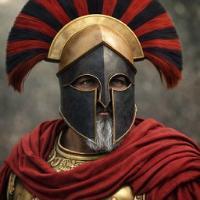
.thumb.png.ce58cea22940c255f5b0a735d5abee36.png)
.thumb.jpg.b21ca1d0c15fb56b42c39b25a0a40815.jpg)
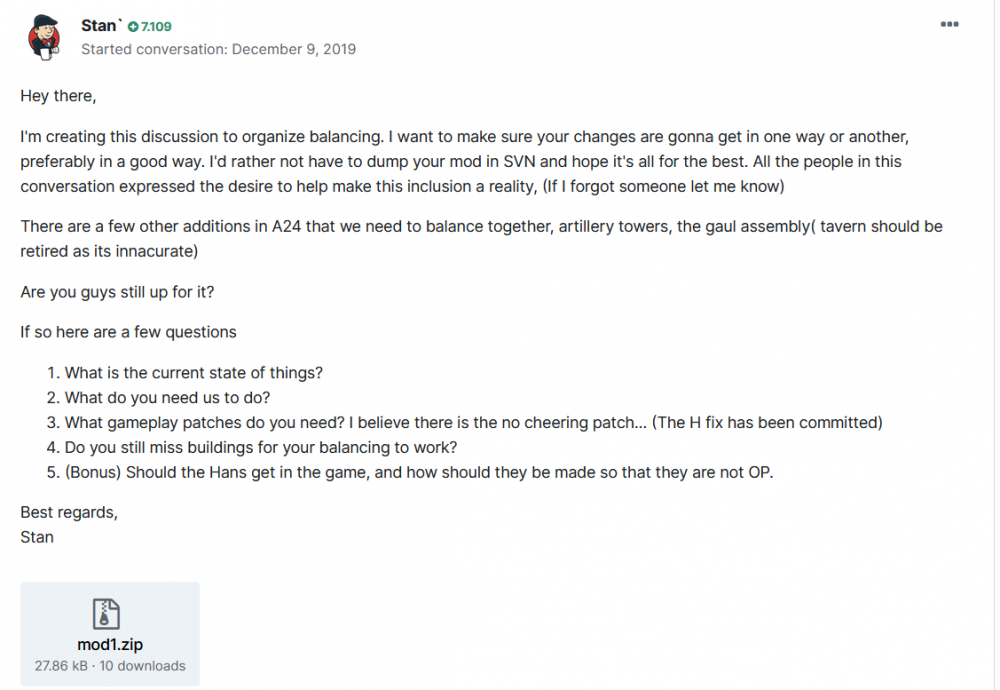

.thumb.png.f3f47d08fd1bf1063ea4b371390681b4.png)
